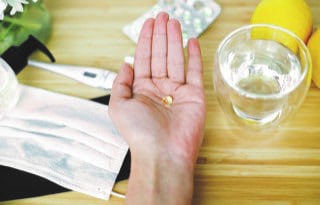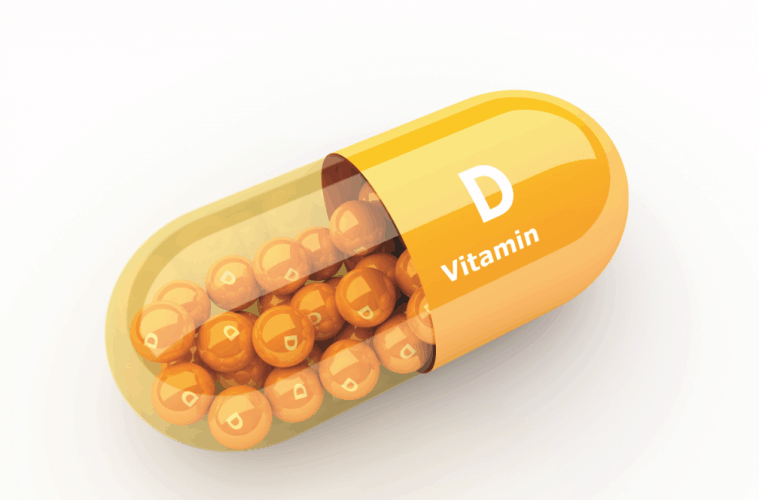As statistics released by Mintel show a major increase in the sales of vitamin D, PiF considers whether vitamin D really can prevent COVID-19…
New research from Mintel has revealed that the nation’s use of the sunshine vitamin is growing faster than any other vitamin supplement, but, despite the surge, experts have urged caution that people shouldn’t be taking it as a means of curbing their risk of contracting COVID-19 since not enough research has been done to establish a definitive relationship between the supplement and the coronavirus.
Deficiency in vitamin D in the United Kingdom is widespread – primarily due to the chronic lack of sunlight.
Unfortunately, only a small amount of vitamin D can be obtained from diet. Instead, the best source of vitamin D is the sun’s rays.
Unfortunately, the particular wavelength required to produce vitamin D from the sun is only available for three or four months in the summer – barring rain and cloud. Also, the skin needs to be exposed at the hottest time of the day for about fifteen minutes.
The government recommendation is that all individuals should consider taking at least 10μg/400iu in autumn and winter months per day, which should be considered enough to prevent deficiency in most people. Many studies, however, suggest that patients may benefit from larger doses.

Mintel’s research has shown that usage of vitamin D has risen eight percentage points in the last twelve months, and is now taken by 38 per cent of vitamin, mineral and supplement (VMS) users – up from 30 per cent in 2019.
‘The rise in vitamin D usage is likely due to its associations with immunity and memory improvement,’ says Emilia Greenslade, Mintel OTC and Personal Care Analyst, UK. ‘Highly publicised research linking vitamin D with protection against COVID-19 may have also impacted usage, although this has been challenged by NICE which concluded that there is no evidence to support taking vitamin D supplements to prevent or treat COVID-19.
Government advice may have also impacted usage, with the government advising that people consider taking a daily supplement containing 10 micrograms of vitamin D as social distancing sees people spend fewer time in the sunlight and more time indoors.
‘Undoubtedly, consumers are more worried about their health following the outbreak of COVID-19, and are seeking out preventative measures in the long term, including taking vitamins and supplements. Strong consumer demand for VMS in the initial weeks of the epidemic led to stockpiling which impacted availability of these products. While supply chains quickly returned to normal, demand has continued to remain high. But despite the boost in sales, the number of users remains the same with the rise in value of the category in 2020 driven by increased usage amongst existing users.
‘Driving habits amongst occasional users is essential to ensure long-term engagement and sustained value growth, and brands can do this by using apps to set reminders and create schedules or offering specialised plans giving consumers more structure to routines.’
Despite the soar in vitamin D supplement sales, some experts are urging caution, pointing out that insufficient research has been done to establish a definitive relationship between taking the supplement and fending off COVID-19.
Sabyasachi Sen, a professor of endocrinology and medicine at George Washington University, says that deficiencies of vitamin D are ‘not rare’ and are especially common in older adults, obese people, and people with darker skin.
Another study, which was published in JAMA Network Open in 2014, looked at the health records of 489 people in Chicago and found that patients with a vitamin D deficiency in the year prior to testing for COVID-19 were 77 per cent more likely to test positive for the disease than those with normal vitamin D levels.
In an experimental study in France at a nursing home with 66 people, meanwhile, researchers found that taking vitamin D supplements was ‘associated with less severe COVID-19 and a better survival rate’, while another study of 200 people in South Korea found that a deficiency of vitamin D could ‘decrease the immune defences against COVID-19 and cause progression to severe disease’.
A recent paper considered by the National Institute for Health and Care Excellence (NICE), however, looked at vitamin D levels from approximately fourteen years ago and didn’t find any correlation between vitamin D levels and COVID-19 mortality.



